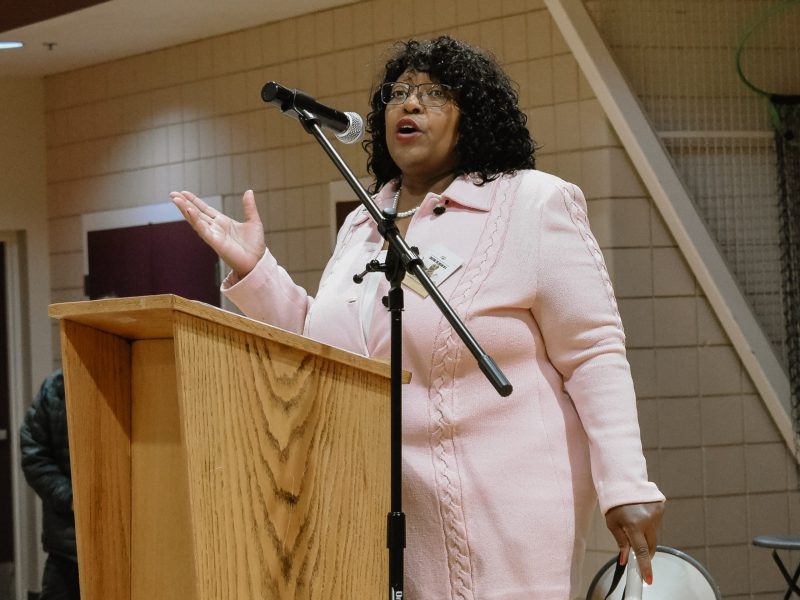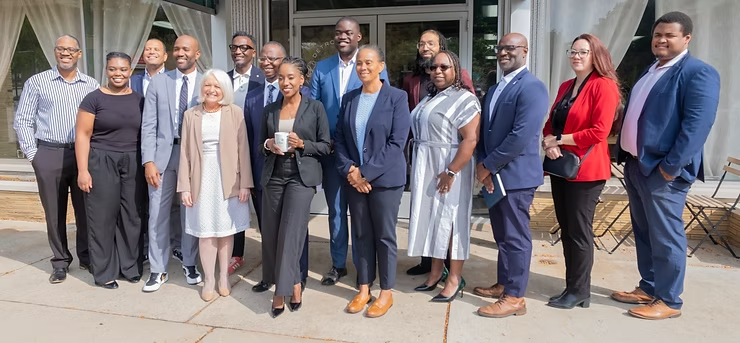Opinion: A way forward
We asked a handful of Detroit thought leaders and community activists to weigh in on critical matters of the day. This is their space, these are their opinions. This week, Ellen C. Schneider and Kimberly Ross Clayson illuminate what emergency financial management can mean for the city.
A financial plan is coming for Detroit. It is not coming from our locally elected leaders, and we may not be happy with the course of action the state has taken to get us to this point, but a plan is coming. A plan is needed. Inaction by our political leadership has cost too many people personal safety and financial security. So even though we do not all agree on the approach to recovery, we must all agree on success. As women who have chosen to commit to this city for better or worse with families, careers and investments in tow, we implore our leaders at the local, regional and state level to develop a successful financial plan that puts residents first, is fair and involves cooperation. So what does a successful plan involve?
It prioritizes improving quality of life for city residents
Cutting costs is an important and noble goal, but it cannot come at the expense of the very basic function of a municipality — services. A successful plan will restructure city departments to improve our ability to provide efficient, low-cost, basic service delivery to Detroit’s residents, visitors and employers. Police and fire response, streetlight maintenance and code enforcement MUST improve IMMEDIATELY.
The plan must also address the many costs imposed on residents that make living in the city financially unjustifiable. Income taxes, car insurance rates, and criminally high property taxes reduce marketability of Detroit real estate, pushing out existing residents and deterring future residents from moving to the city, investing, or registering to vote.
It is fair
Detroit has an obligation to manage old debt and prevent it from choking out our future. This begins with addressing old obligations and liabilities in a way that is fair. Bankruptcy is certainly a last resort for the city, but even if we resolve our financial troubles short of Chapter 9 relief, the Bankruptcy Code is a roadmap for recovery that incorporates rules for fairness and equity.
Chapter 9 prioritizes service delivery to residents and employee interests ahead of bond holders who are put at the end of the line. The rules are set up to allow municipalities to perform the core services that are the very reason for their existence. It is out of fairness to taxpayers that municipalities are granted the power to deliver services before servicing low-priority debt. It is time for bondholders who have sacrificed little and collected millions of dollars in fees and interest to share in the pain.
The idea that any judge or third party could force the city to sell assets in bankruptcy is an empty threat. It would be up to the city to determine fiscally appropriate asset sales or none at all. For example, selling off assets that contribute to quality of life and attract and retain residents will only lead to a further decline in tax revenue over time. This is not good fiscal policy and should not be mandated under an EM. However, we must be open to it where it makes sense, such as with assets that presently serve as liabilities, including our countless city-owned vacant and unmaintained lots and buildings.
It is a cooperative effort
The State’s involvement in Detroit’s finances is temporary. Stakeholders (residents, employers and city employees) will define Detroit’s long-term viability. This requires cooperation among state leadership, the EM and stakeholders. The EM and the governor must cooperate and include stakeholders in the process for lasting success or face certain failure. We must also expect stakeholders to accept the possibility of new approaches to old problems, some of which may be implemented or recommended by outsiders.
A successful plan must also include cooperation of our suburban neighbors. Mutual responsibility is the only path to ensure long-term viability of the region as a whole. Cities and suburbs do not exist in isolation of one another and cannot effectively plan in a vacuum. Exclusivity and competition amongst municipalities in Metro Detroit hurts us all. We must acknowledge our shared interests with our suburban neighbors and maximize resources in a way that is fair and beneficial to all.
No one individual can or will be the city’s hero, and anyone who strives for this title will fail miserably. No one person is or should be the scapegoat, and anyone who points fingers instead of finding solutions is a part of the problem. Our goal is to rebuild city finances and core functions to meet the needs of the residents. The only way forward is through mutual cooperation — individual, city, suburb and state.
Follow the signs to success
If every person and entity affected by the recovery of Detroit frames the financial restructuring under these simple tenets — service delivery, fairness and cooperation — we can find collective success for financial restructuring that benefits us all.
Kimberly Ross Clayson is an attorney with over six years experience practicing bankruptcy law with Schneider Miller, P.C. She is co-treasurer of the Detroit Waldorf Board of Trustees, a Declare Detroit Drafter and former President of the Villages CDC. She lives is Indian Village with her husband and daughter.
Ellen C. Schneider is a recent graduate of Wayne Law and fellow attorney at Schneider Miller, P.C. A lifelong Detroiter, Ellen is involved with a number of efforts to promote civic engagement in the city, serving as co-founder of DetroitFREQ radio and Vote Detroit. She currently resides in Woodbridge.
Photos by Anthony Eggert






